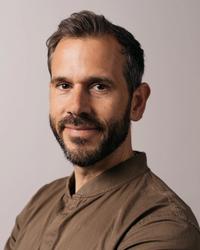Open Source Gets a Universal Adaptor: Plural
Our latest investment coming out of stealth is poised to radically simplify software development.

Shopify famously “armed the rebels” against Amazon. Plural aims to do the same thing against AWS by making it easy to deliver open source software directly, instead of getting squeezed by the public cloud providers.
This is the ambition that got me excited about Michael Guarino’s vision for Plural. Rebellion has always been core to the ethos of open source developers, and like so many great inventions, Plural began as an expression of an engineer who got frustrated with the technology Michael and his friends were using.
Plural is a platform that makes it easy to deploy, connect, observe, and update a catalog of open source solutions on the infrastructure of your choosing. Open source maintainers can use Plural to distribute, monetize, and deliver support for their technologies. The ultimate goal is to create a marketplace that serves both devops teams and open source maintainers, eschewing vendor lock-in and the unsustainable value-capture public cloud providers realize by appropriating open source software. For demand and supply alike, Plural delivers direct access, endless variation, and unfettered growth.
Discovering the Opportunity
I started working with Michael Guarino, Co-founder and CTO at Plural, in 2020. Michael’s experience at Frame.io taught him the power of Kubernetes. His experiences at Twitter, Amazon, and Facebook, taught him the extreme complexity of managing open source software deployments at scale, and gave him the context to understand how Kubernetes could dramatically transform how infrastructure gets managed.
Kubernetes is the operating system for the cloud. It’s an open source technology that automatically orchestrates the countless complexities most people (engineers included) never think about applications at scale requiring. But Kubernetes is not like an outlet that any appliance can easily plug into. Applications still require complex configurations to realize the power of Kubernetes, and Plural seeks to become that universal adapter.
Michael had a grand vision and deep knowledge. We started interviewing technologists – CTOs, CIOs, DevOps leaders, IC engineers, entrepreneurs, and investors – to assess different entry points to realize the full potential of Kubernetes. This journey led us to identify a massive opportunity to align value creation with financial rewards by making it easier for devops teams to go direct to open source maintainers. Currently, these teams rely on the public cloud providers’ sub-par and over-priced variations of open source software. The dream we hatched was to deliver the ease and speed of an AWS without the exploitative costs and vendor lock-in.
The problem with knock-off open source—and how to do it better
Open source software already ate the internet. 90% of code utilizes open source in some way, and a myriad of specific projects – Airflow, Grafana, Airbyte, Jenkins, etc. – have become central to building and running applications. The big three public cloud providers, AWS, GCP, and Azure, have copied these open source projects and provide them as heavily marked up managed services. Theoretically, customers can run the open source code for free on commodity compute infrastructure, but this is actually incredibly hard. When large organizations try to avoid to avoid the managed service layer of public cloud providers, they often struggle to stay coordinated and effective with their open source deployments: different versions of the same solution proliferate, with sub-optimal configurations and sub-par oversight; things break; troubleshooting is hard; tribal knowledge makes onboarding difficult and departures impossible. At the end of the day, too much time gets spent on infrastructure instead of building product.
Kubernetes and open source have both won the battle for how software gets developed, but the two have not been effectively connected.
Building a dream team
The customer discovery work at Plural was pointing to a massive opportunity. Engineers and engineering leadership are hungry for a better way, and the soon-to-be $1 trillion cloud market is more up for grabs than it seems. Primary led a pre-seed round and we started looking for the ideal CEO to join Michael.
It is rare in startups (or life, for that matter) that you find exactly what you’re seeking. Compromise is inevitable. Not so with Sam Weaver, the Plural Cofounder and CEO. Sam comes to Plural after having a front-row seat at three unicorns, each one preparing him to build Plural. Sam was an engineer at Red Hat, a sales engineer at MongoDB, and most recently a VP of Product at Unqork. Sam and Michael also fit like hand-in-glove.
In October, Sam joined Plural full time, and we were joined shortly thereafter by the outstanding investor Oana Olteanu at SignalFire, who led the seed round, bringing the total raised to $6.7 million. Oana is an ML engineer herself and has a background of building and investing in the types of companies that will benefit from Plural. She knows the playbook inside and out for scaling companies like Plural. She immediately grokked the opportunity and dove in. Plural has also benefited tremendously from generous advisors — Liam Randall and Sinclair Shuller stand out – and we’re all thrilled to be launching publicly.
Plural aims to fundamentally change how open source is deployed and managed by its users and distributed and monetized by open source vendors. Our ideal end state is a world that is more productive and more fair for the engineers who are building the future.
Visit Plural.sh to learn more about working at Plural and check out the demo video to learn more about the product.
